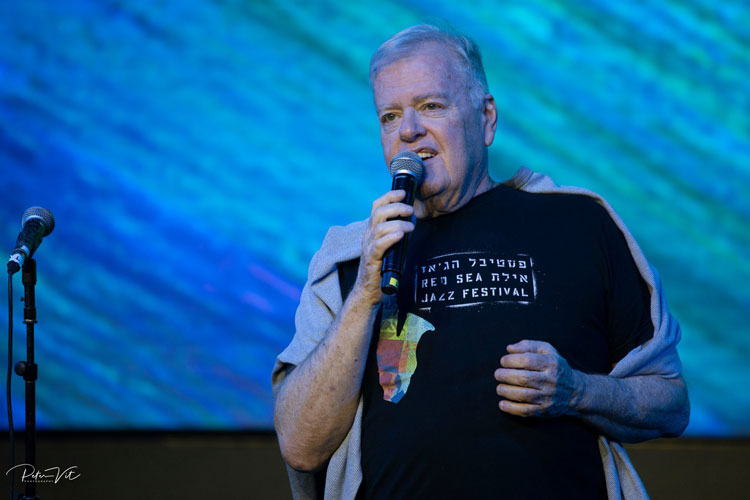Author: Gil Rouvio
Only rarely do we get to know a music professional in the field of culture, who is not a musician himself, who had such a significant influence on expanding the cultural spectrum of an entire country.
The late Israeli radio DJ and music curator, Dubi Lenz, passed away this week at the age of 76 after a long battle with cancer. Dubi had sharp senses to recognize quality, an extraordinary eclectic musical taste, an infinite sensitivity to recognize beauty even within cultures that were foreign and new to him, and alongside all this – he had a host of great platforms to present and share these cultures with large audiences for over six decades.
Dubi began his career as a music editor and broadcaster at one of the leading radio stations in Israel as early as 1973. He quickly became the head of the station’s music department and did so more than once. During his time at the station, he brought about some real revolutions. Dubi, for example, was responsible for the fact that music editors also began to narrate the programs they edited and were not only required to hand over the list of songs to another ‘professional’ announcer. “No one can tell the story of the song better than the one who chose it”, he said.

In his legendary radio program, “Everything Flows” Dubi introduced to Israeli radio from the beginning of the 80s the possibility of editing music in sequence or as we know it nowadays: “sets”. He proved that it is possible to edit music from any possible type, from any genre, and from anywhere on the globe, mixing all these flavors together and make it sound logical, deep, and full of emotion and beauty. This is how Johann Sebastian Bach, Antonio Carlos Jobim, and Peter Gabriel found themselves side by side in the very same program.

And moreover, Dubi brought to Israeli radio music from all over the globe: from Africa and South America to many other places, which may seem to be closer to us, like Ireland or France. Long before it was called “world music,” Dubi brought music from the wider world to local radio and the culture scene and continued to introduce us to cultures that most of us are not exposed to, not only in the pre-internet era but also during it. Even when everything is seemingly available, how rare are mediators like him, at the level of knowledge, depth, and most of all, love.
Along with all the great things that Dubi collected and presented to the local audience in Israel (like an outstanding importer), he was also a senior exporter in everything related to the promotion of local music to the world. He supported dozens of local artists, from almost every possible genre, took advantage of his many connections around the globe and made sure to cultivate the Israeli music scene overseas. In all his many travels, the hundreds of lectures he gave, the thousands of festivals and conferences he took part in, he was always proud of the creators of Israeli jazz and world music, many of whom still owe him their success on the international scene.
Soon, Dubi also took the reins into his own hands and artistically curated a series of music festivals, the most prominent of which were “Hearing the World” and the Red Sea Jazz Festival (both in its summer editions and in the winter version that he initiated and established from day one). He always emphasized the fact that he does not want to run a specific genre festival, and always chose to come out of the ‘ghetto’: “I bring shows with the only criterion being – excellent music, no matter how it has been labeled”.
He received many honors and awards during his life, including the honorable title of Chevalier de L’Ordre des Arts et des Lettres from the French government.
But above anything, Dubi Lenz was a guy who just loved people. He was humble, open, and humane, listened to everyone who approached him, and made accessible and long connections worldwide. And he really knew how to party. One can’t forget the long nights, that after a series of endless showcases he attended, Dubi, despite his age, refused to go to bed before celebrating the night away at a great dance party (especially if they played samba there) when we, his younger colleagues, would collapse into bed long before him.
He will be greatly missed by all of us here. We will miss the excitement of hearing him tell us about the new musical discovery he heard at some festival at the end of the world. We will miss the genius musical editing on his radio shows. And above all, we will miss his smile.
(headline image: Dubi Lenz at Red Sea Jazz Festival – – Photo by Peter Vit_



Is there an archive of his shows,etc? Maybe a podcast? Great article!
Well written Gil. His smile looks so genuine.
It is such a lost, and more so to the people that loved him so much, including you. It is well noted by the way you wrote on him. Thank you for that